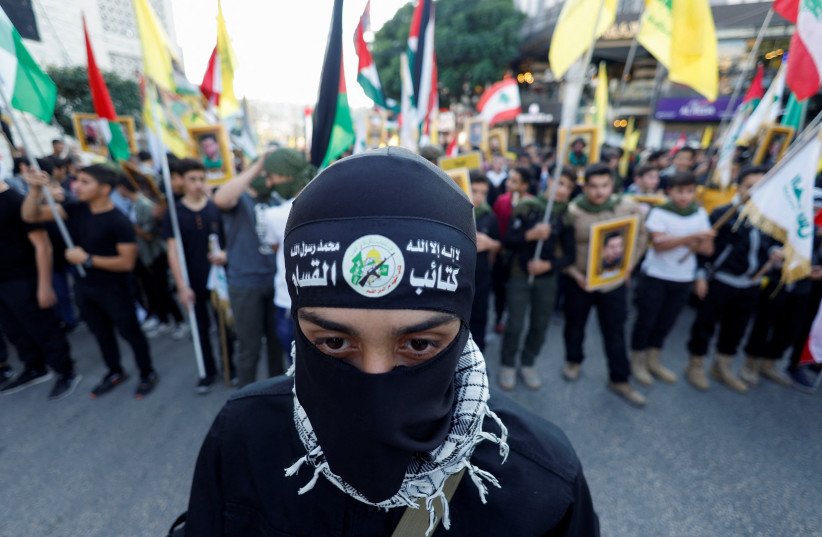Iran has appeared to shift gears during the pause in fighting in Gaza. Like Israel, it must step back and look at what it believes it has achieved. From the Iranian regime’s standpoint, it believes it has achieved a lot.
It has been able to coordinate attacks on Israel by pushing Hezbollah and the Houthis to carry out attacks. It has mobilized pro-Iranian militias in Iraq and Syria to attack US forces. It has also negotiated with Thailand on behalf of Hamas to release Thai workers held in Gaza.
Iran achieved many things during the war
So far, it looks like Iran has achieved many of the things it wanted. It likely has other plans for expanding the operations of Palestinian Islamic Jihad in Jenin and for increasing support for Hamas in the West Bank. But these are long-term goals. Short term, Iran is pleased to see Hezbollah using weapons like the heavy rocket called Burkan, for attacks. It is pleased to see the Houthis hijack a ship and see Houthi propaganda spread in the region.
Iran’s leaders said on Sunday that they believe Hamas was able to force Israel to come to an agreement on a pause or ceasefire in fighting. The commander of Iran’s armed forces Maj.-Gen. Sayyed Mousavi said that Tehran was able to bring Israel to the negotiating table. He also said the war has shown that the West’s commitments to human rights are hypocritical.

This grand statement, this huge strategic explanation, was provided to students in a speech by the general at a nursing college linked to the Iranian army, according to pro-Iran Al-Mayadeen media. One wonders if Iranian nursing students are the natural audience for this kind of explanation.
Not to be outdone by the importance that explaining Hamas “resistance” to nursing students might have, one of Iran’s senior judiciary officials visited the IRGC aerospace force to see the latest drones, missiles and other Iranian military capabilities. Once again it was unclear why the presence of judiciary people at an exhibition on drones and “hypersonic” missiles was helpful to Iran, except that the IRGC could put out more claims of its abilities.
Houthi Al-Masirah media had a few more takes on the recent conflict. It included articles focusing on Hezbollah deputy leader Naim Qassem and Hamas official Osama Hamdan also praising the ability of Hamas, Hezbollah and the Houthis to work together. This is an important development. There is no doubt Iran has operationalized all these groups in threats against Israel.
Taken together, the statements would appear to indicate that Iran believes it has succeeded in unifying various fronts against Israel. But it is less clear on what it has actually achieved.
Numerous attacks on US forces in Iraq and Syria haven’t had any real effect. Hezbollah attacks have caused the government to evacuate people from northern Israel with no end in sight in terms of when they can return home. The Houthi attacks so far have not accomplished much.
On the one hand, Iran has carved out impunity in terms of its ability to carry out attacks with its proxies. But the proxies are cautious and pragmatic in what they do. This shows the balancing act that Tehran has accomplished. Nevertheless, the war in Gaza has been very different than the previous conflicts in 2014 and 2009. Iran is wondering what to do next if and when the “pause” in fighting ends.
